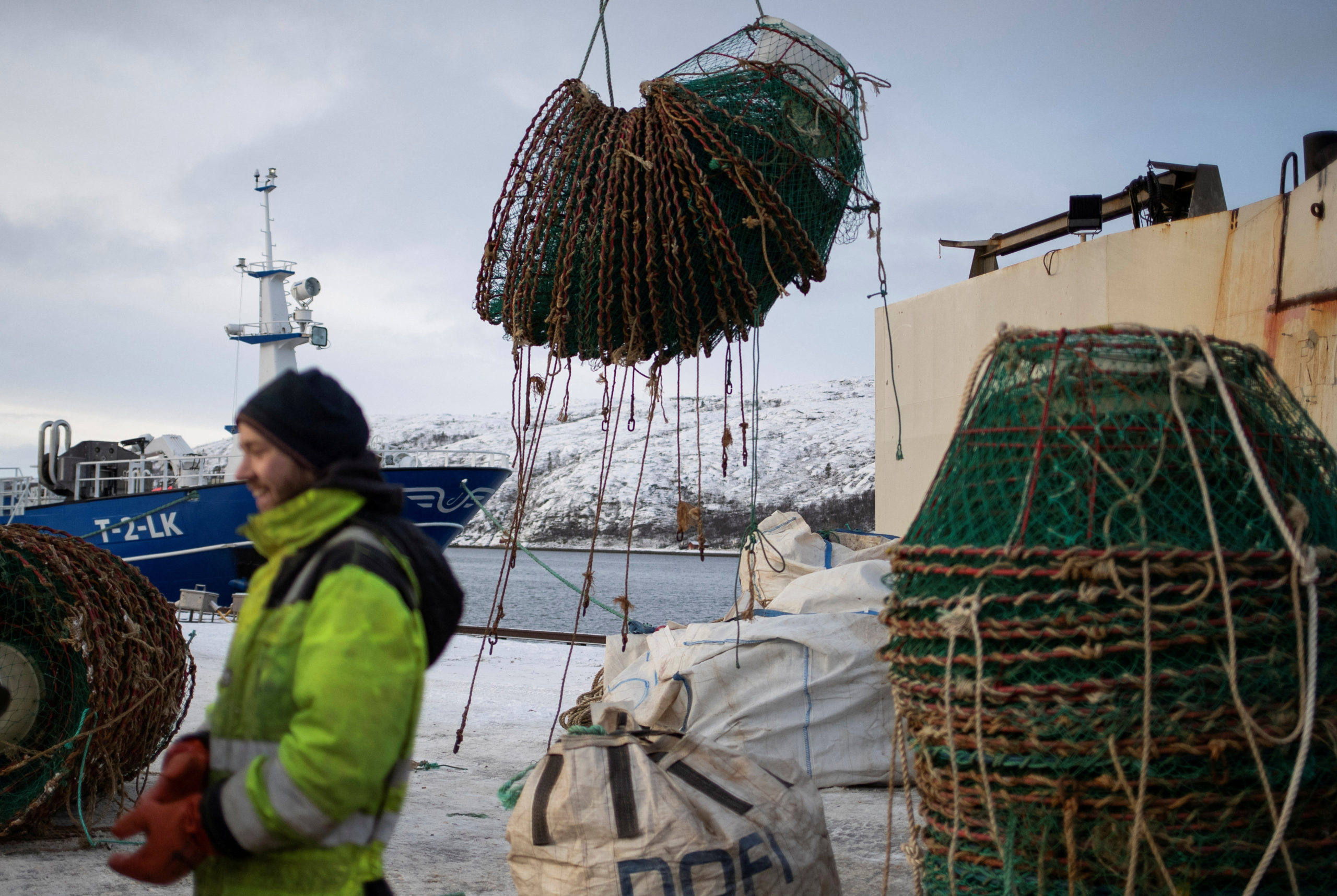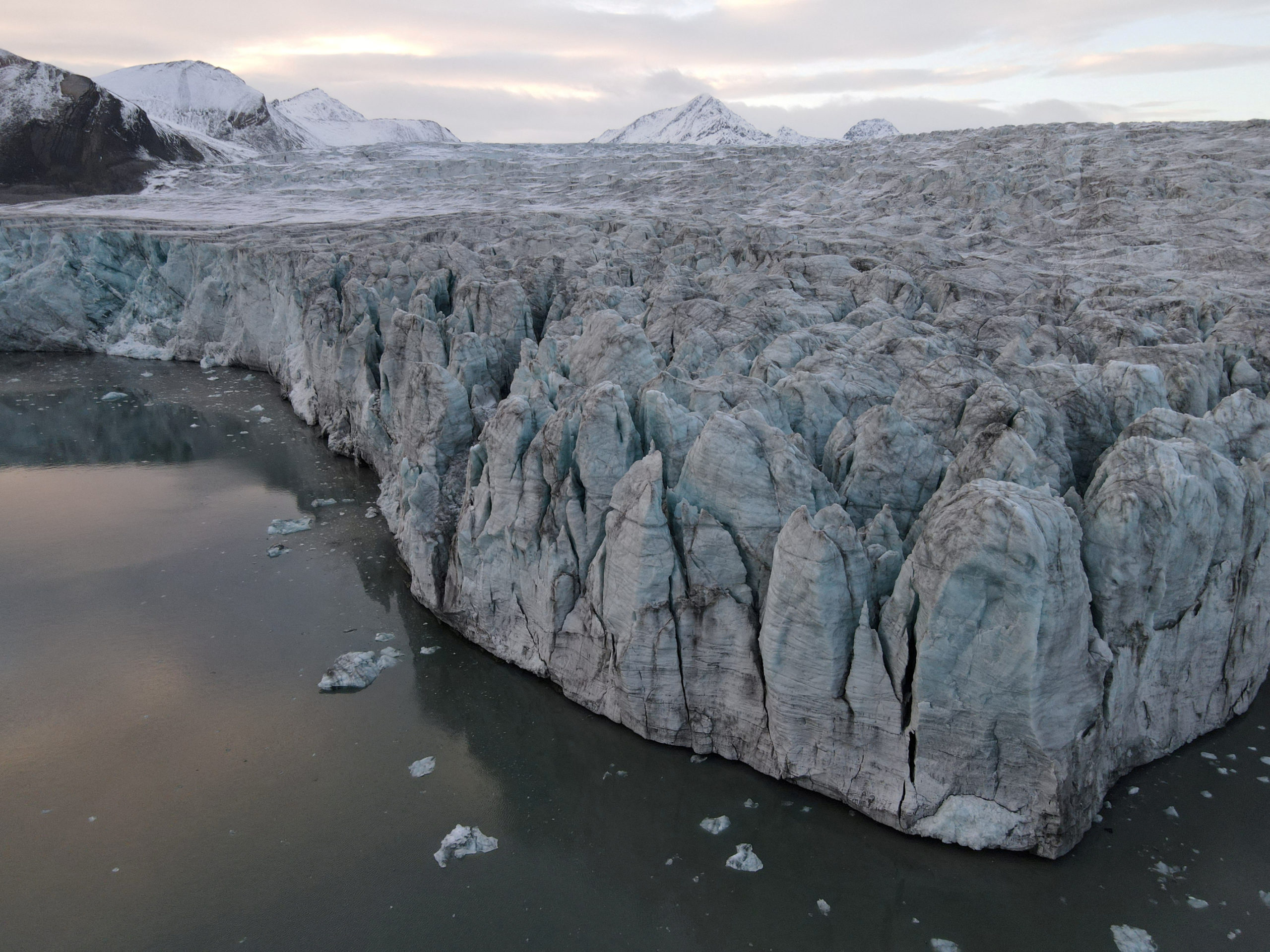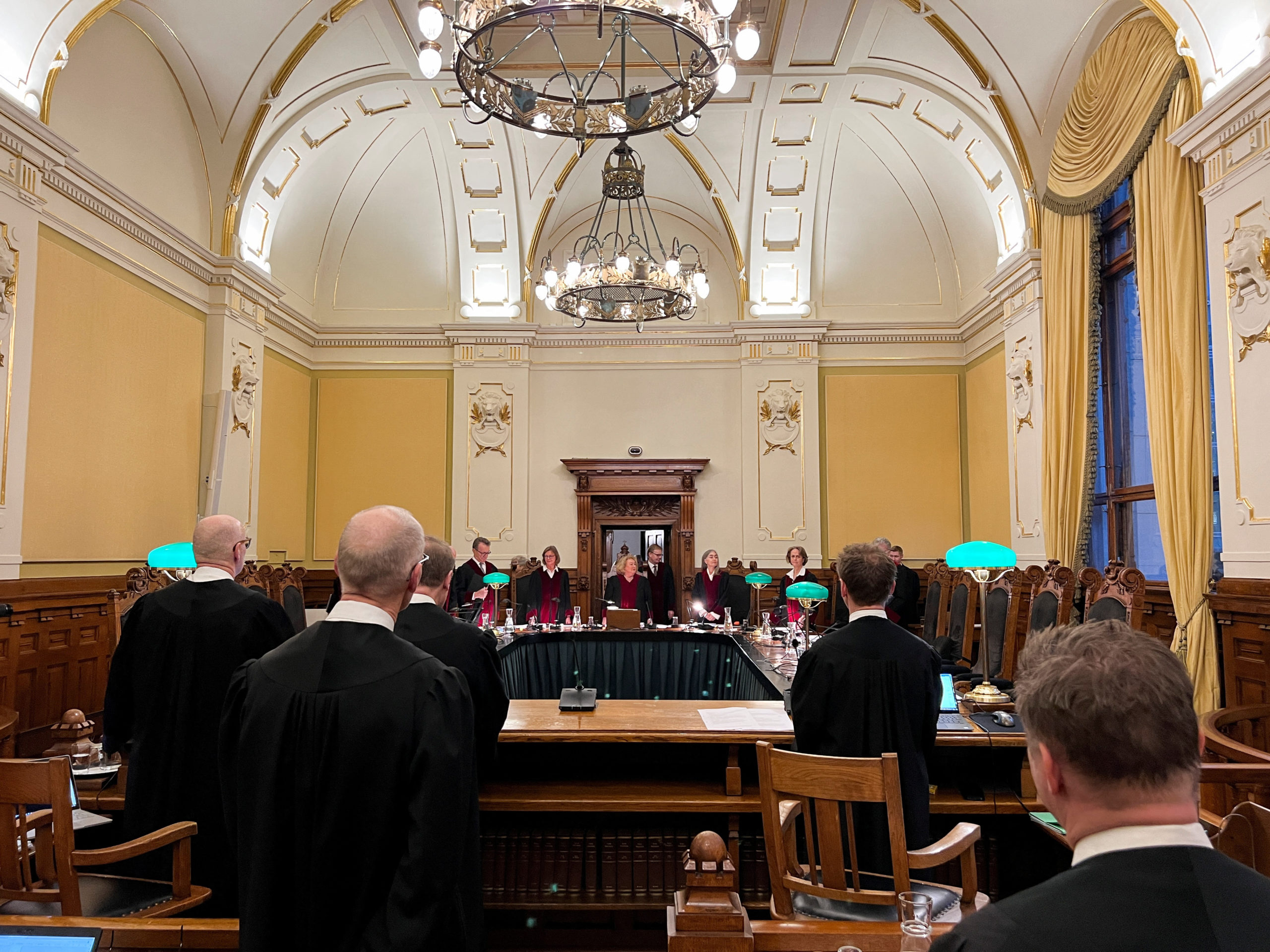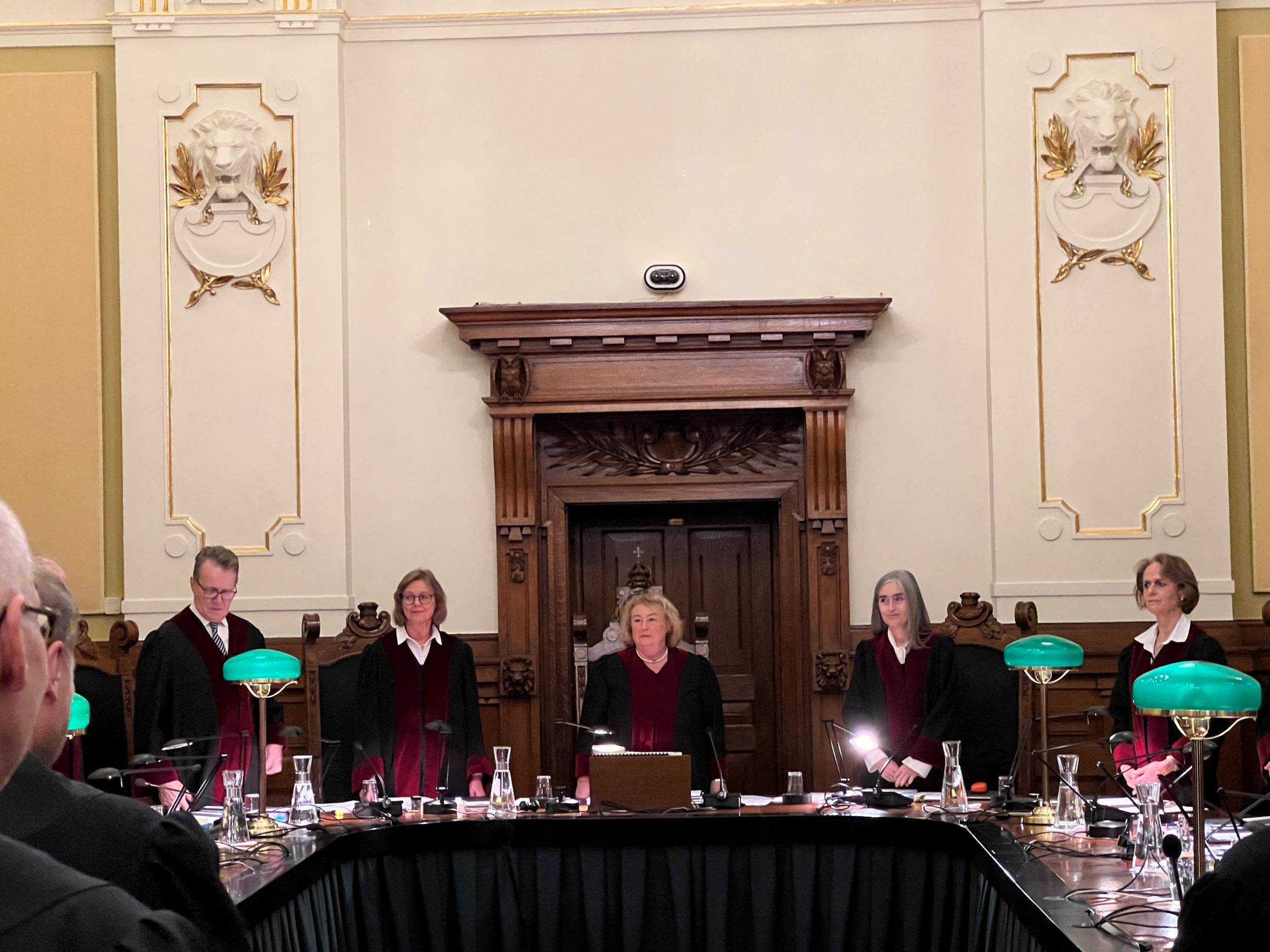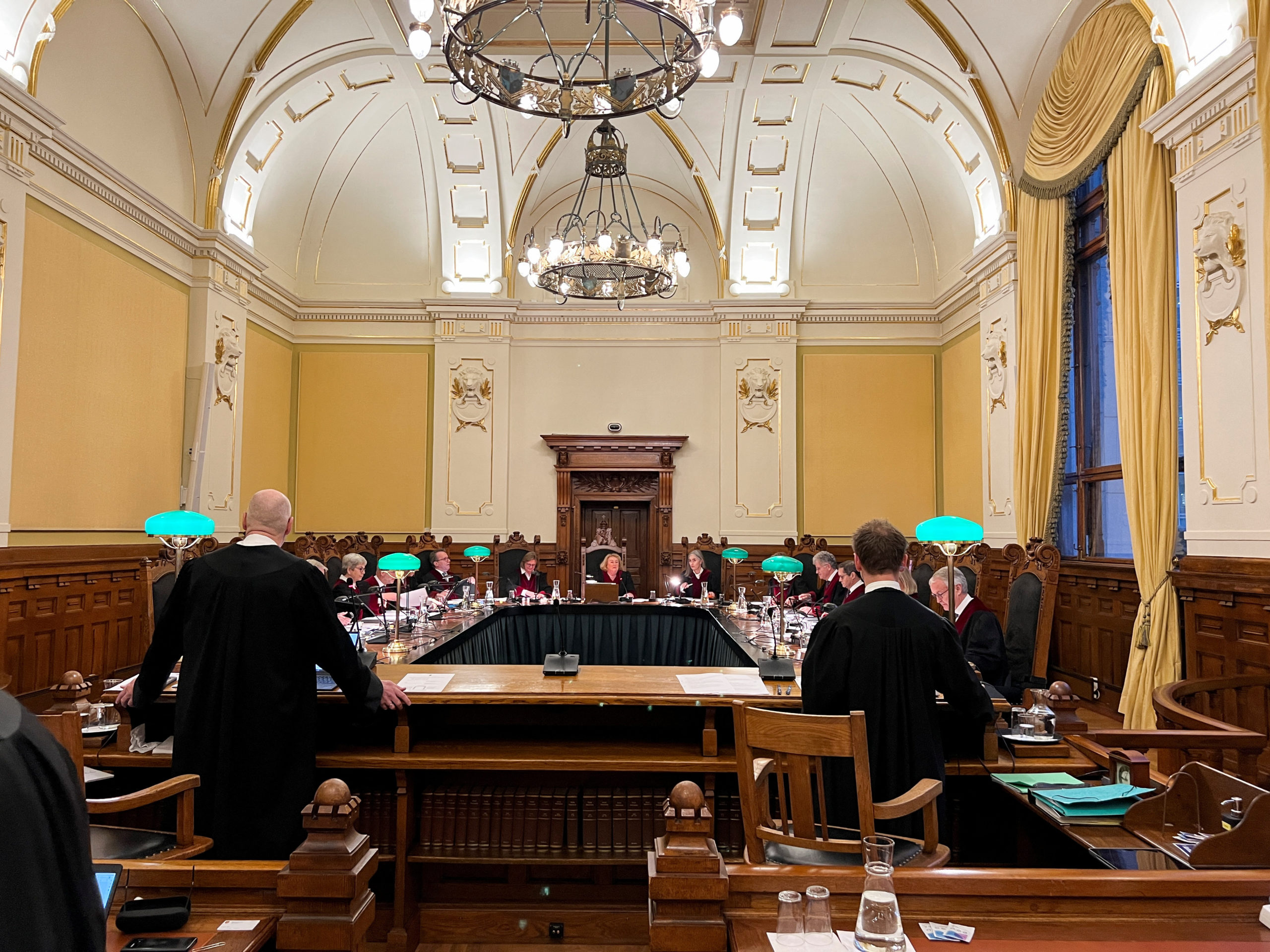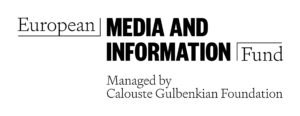Norway’s Supreme Court hears Arctic snow crab case affecting oil, minerals
The case has far-reaching implications for the future of the waters off Svalbard.
OSLO — Norway’s Supreme Court on Tuesday began hearing arguments on whether EU ships can fish for snow crab off the Arctic islands north of Norway, in a case that could decide who has the right to explore for oil and minerals in the region.
At stake is whether EU vessels have the right to catch snow crab, whose meat is considered a delicacy by gourmets in Japan and South Korea, in the same way than Norwegian vessels do.
A Latvian fisheries company applied to the non-EU country in 2019 for a fishing license to catch the species, but was turned down on the basis that only Norwegian vessels can.
The Latvian firm argued on Tuesday that it also has that right under the 1920 Svalbard Treaty, which grants Norway sovereignty over the Arctic islands with the condition that other signatories have access to their territorial waters.
The case has far-reaching implications, according to Oeystein Jensen, a professor at the Fridtjof Nansen Institute in Oslo.
“If the Supreme Court thinks the Svalbard treaty applies, it is not only about snow crab, it will be about oil, gas, minerals and fish,” he told Reuters. “It is everything or nothing.”
In a sign of the importance the case has for Norway, 16 Supreme Court judges were present on Tuesday to hear arguments during the four-day session. Most other cases are decided by a panel of just five.
“The key question here is the Svalbard Treaty and the surrounding areas,” Hallvard Oestgaard, representing the Latvian fishing firm, told the court in his opening statement.
“If the treaty applies, then the denying of the fishing license is invalid.”
In 2019 the Supreme Court ruled unanimously that EU fishermen must ask permission from Oslo to catch snow crab, after the same Latvian fisheries company had tried to fish off Svalbard with only an EU license.
This article has been fact-checked by Arctic Today and Polar Research and Policy Initiative, with the support of the EMIF managed by the Calouste Gulbenkian Foundation.
Disclaimer: The sole responsibility for any content supported by the European Media and Information Fund lies with the author(s) and it may not necessarily reflect the positions of the EMIF and the Fund Partners, the Calouste Gulbenkian Foundation and the European University Institute.
